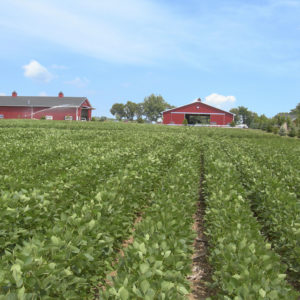By: Galynn Beer, National Sales Manager
In agriculture, we are used to dealing with uncertainty. Weather, markets, the level of uncertainty
that exists in our geography, all are factors in making crop input decisions. Trade wars and
tariffs, along with Market Facilitation Programs (MFPs), have been harder to predict and factor
into decisions and has caused some frustration. But we’ve persevered.
Agriculture Presses On
While much of the country, and world for that matter, ground to a halt as a result of COVID 19, agriculture presses on. Farmers continue to quarantine themselves in their tractors and isolate themselves in fields. The one thing to
remember is that COVID 19 is not transmitted through the phone while sound advice can be. Technology provides us a mode of communication that delivers access to resources of expertise and inputs.
The Weight of Uncertainty
With all of the financial news being reported, a great deal of uncertainty exists. This can cause farmers to go in to survival mode and want to scale back input costs to a minimum. Emotionally charged decisions may override rational business decisions. AgroLiquid has personnel that ranks at the top of the industry when it comes to
making recommendations and matching fertilizer needs to expectations and economic conditions. While there won’t
be room for frivolous spending, a nitrogen only program—which I would consider a survival decision—won’t be the answer either. AgroLiquid aims to add value through guidance from trusted advisors. Someone who is a step removed from the weight of uncertainty can provide insights to help fight off the risk-averse tendencies that creep in with unanticipated risk. The AgroLiquid team can help in a couple of ways:
1) we have a culture of constant improvement to elevate our skills for times like this and
2) we want the farmer to be able to emerge from the uncertainty as an entity that will be on-going… surviving and producing profits for years to come.
As a result, it is in our best interest to make fertilizer recommendations that are in the grower’s best interest. We are
used to balancing the expense of crop nutrition with expected revenue, which accounts for current risk.
Evaluating Risk
In times like this, normal risk-takers can turn very conservative. And it is a sound practice to evaluate levels of risk. But as unexpected as this virus and all of the negativity has been, there are often surprise glimmers of opportunity. I’m sure the toilet paper industry never forecasted the demand they are experiencing! Many businesses have been affected. Virtually every aspect of the economy that generates tax revenue for local governments are going to take a serious hit. We’ve seen the Fed set a target Fed Funds rate of 0% in order to make risk-taking less costly. The potential exists for us to see significant spend packages to jump start the economy once the impact of the virus has subsided. I wouldn’t be surprised to see some quantitative easing as we did after the housing bubble burst, which is just the Fed buying back longer term securities to hold on their balance sheet and replaces those securities with cash in the economy to be spent. These actions could devalue the dollar, which then can prop up commodity prices and
make our agricultural products more affordable for countries like China. If indeed we see a bump in prices, it will likely be delayed; in other words we’ll have to wait and deal with added uncertainty in the interim. But if a producer faced with difficult decisions cuts too many corners, and then commodities rally to better levels, there won’t be the optimum production to capitalize on the opportunity.
The Path Forward
You’ve heard it before, but we are in unprecedented territory. While quantitative easing could help lower the value of the dollar, currency is still comparative. This means if other currencies don’t come up compared to the USD, then there won’t be much of a benefit. Also, demand will matter and it is difficult (impossible) to know what the consequences of most of the world hiding in their houses will do to demand for commodity products, even once recovery starts. A case can be made for a rally at some point in the future, but it’s hard to predict to what levels we could expect if it does. However, a scenario does exist that a rally could occur that is hard to imagine today. Rational thinking that can weigh the potential for an upside can be an offsetting entry for the brain to balance the thoughts that it will be a long free fall; it might not be.
Your AgroLiquid Team
Agriculture is generally counter-cyclical to the rest of the economy. Agriculture often benefits from the government
spending our way out of a recession. So, as you manage through this season, make sure that the irrational behavior
that is occurring around you doesn’t lead to a bunch of ill-advised decisions. More surprises may be lurking, but we
will emerge. Outside guidance on crop nutrition from the AgroLiquid team can help buffer emotions as the growing
season is thrust upon us. AgroLiquid can add value that extends beyond the nutrients we manufacture. Incorporate outside opinions from a variety of experts to make rational, business decisions in an environment that is loaded with emotion.


